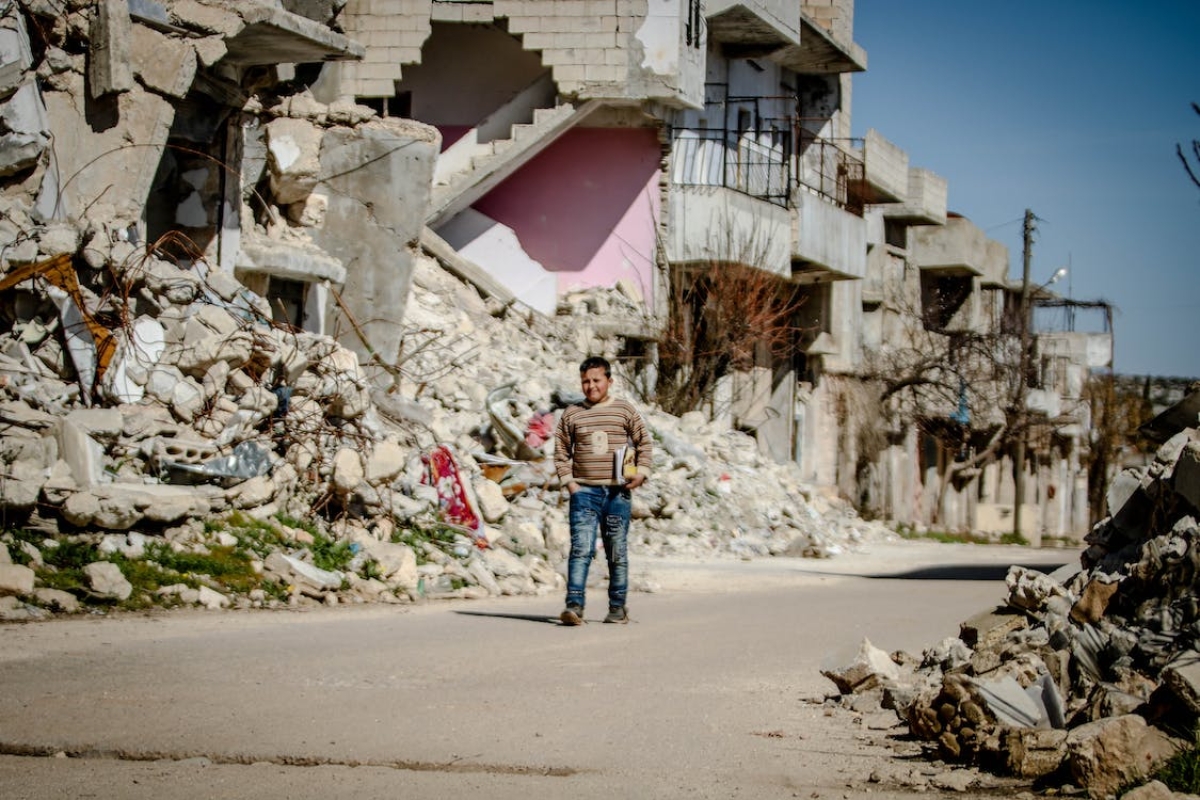Syrische Flüchtlinge nach dem Erdbeben: Verzweiflung und Hoffnungslosigkeit

Zerstörtes Haus in Idlib, Bildquelle: Ahmed Akacha, Pexels
Ein Bericht über die katastrophale Lage, in der sich syrischen Flüchtlingen sowohl in der Türkei als auch im Nordwesten ihres eigenen Landes befinden:
The February earthquake destroyed an estimated 500,000 houses in Turkey alone, and made many more dwellings uninhabitable. The World Bank’s Global Rapid Post-Disaster Damage Estimation (GRPDE) puts the number of homeless people as a result of the catastrophe at 1.25 million.
Most people who have been made homeless now encamp in tent cities such as the one where Madiha now lives. But in this part of the world, where the temperature rises as high as 50°C in summer, they will not be able to reside in tents forever.
The elderly and children here are among the most vulnerable. “I met two 95-year-old elderly women, one who lost four sons, all who would normally be helping and supporting her, Speckhard observed. “The situation is unsustainable.”
Corus International is supporting the construction of a container city in Hatay province, which is a project led by the local NGO IBC. The camp will soon house more than 2,000 people. The Turkish government has announced plans to build 200,000 houses by the end of this year.
Meanwhile, local authorities have been offering limited cash support for displaced people. They promise more help, but those who have fled here face a conundrum: Syrian refugees are not entitled to government aid, and thus must continue to rely upon international humanitarian assistance.
Trauma and Fear of Health Outbreak
As desperate needs grow and help dwindles, risks to the refugees here mount.
Only one hospital serves the entire Hatay province. And in the absence of essential WASH services, officials worry about health outbreaks in the warmer weather on the way. The European Center for Disease Prevention and Control (ECDPC) noted that “a surge of cholera cases in the affected areas is a significant possibility in the coming weeks.”
Just across the border, in war-torn northwestern Syria, cholera is already spreading. Local authorities have reported thousands of cases since September 2022.
Along with the fear of the spread of infectious diseases, however, the earthquake-affected population is also faced with psychological trauma. Everyone you meet here has lost someone in their family. Many of them don’t recognize the extent of the suffering on their mental health as a result.
“One of our colleagues lost everyone in the family except his daughter,” says Hakan Koker, a local journalist in Adana. “His daughter was pulled out holding her baby’s dead body in her arms for three days under the rubble.”
Koker added that temporary respite may give way to deeper grief among survivors: “We are hosting them in our office; they seem numb to everything happening around them. I fear their reaction when they realize their loved ones are gone.”
Having already lived through untold losses, Syrian refugees are particularly affected. Mental health support is crucial in any future response in this region.